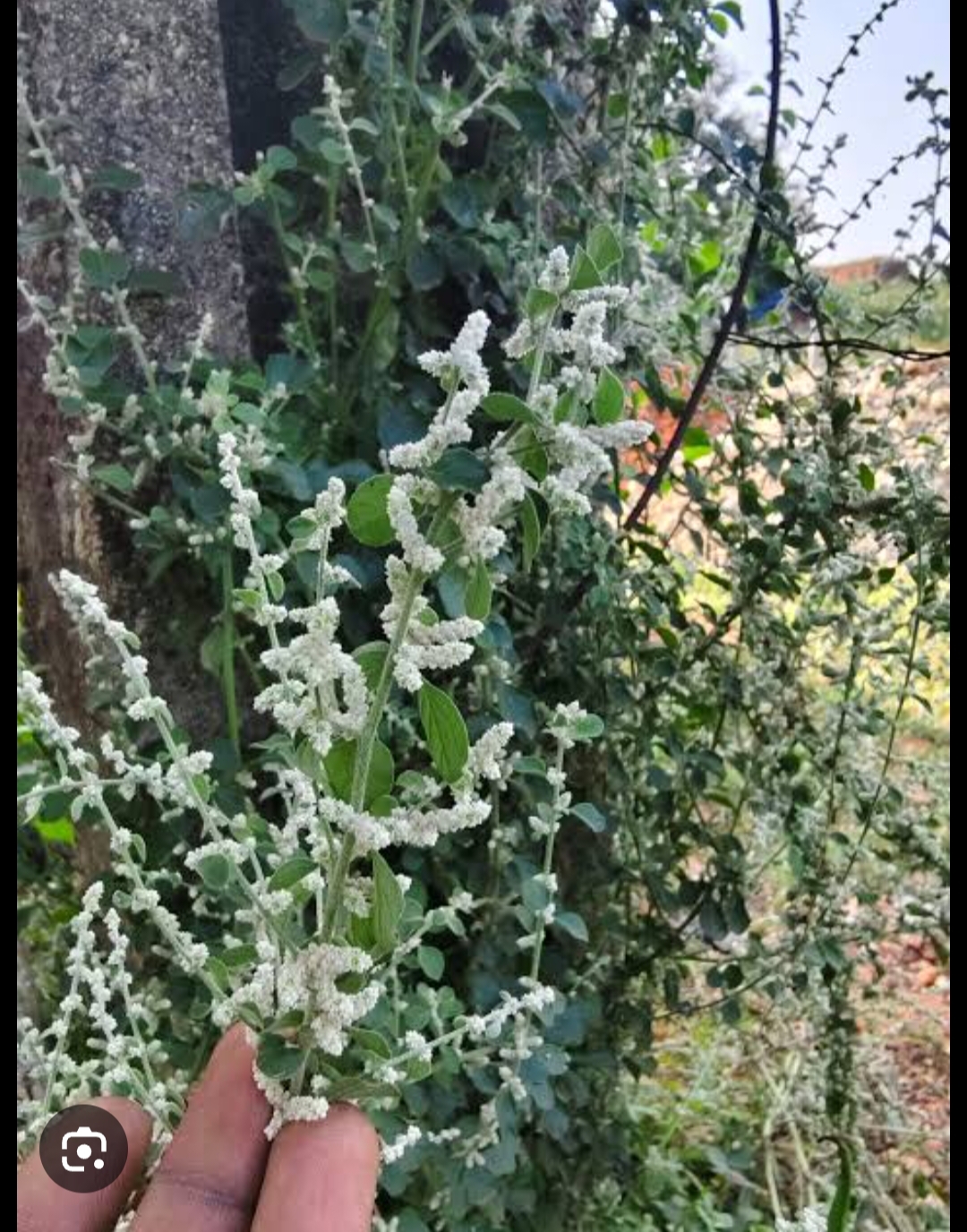Welcome to your holistic living

Botanical Name: Aerva lanata
Family: Amaranthaceae
English Name: Moutain knot grass
Malayalam Name: Cherula
Hindi Name: Gorakhbuti
Habit :creeping or climbing annual herb , leaves : small, ovate to heart shaped , slightly hairy ,2- 5 cm long , stem : Thin , trailing or climbing with tendrils Flowers : small ,yellowish -Green , unisexual ,appearing along leaf axils.Fruits : small,globose berries ,green when immature and black when ripe .roots : Fibrous ,shallow Description Ouret lanata From Kerala. Mountain knotgrass is an annual with a branching, somewhat woody root system. The stems are mostly straggling and sprawling and spread widely, sometimes as much as 6 feet (1.8 m) in length. The often stalkless leaves are alternate, oval and 0.5 to 1.5 in (13 to 38 mm) long. They grow from whitish papery stipules with two lobes and red bases. The tiny clusters of two or three flowers grow in the leaf axils. The flowers are about 0.1 in (2.5 mm) long, pink, green or dull white. The flowers are normally self-pollinated. Flowering time is from May to October. Distribution and habitat In Thrissur, Kerala Ouret lanata is native to tropical Africa, Madagascar, Egypt, Saudi Arabia and Yemen, the Indian subcontinent, Vietnam, Peninsular Malaysia, Sumatra, Java, the Philippines, and New Guinea. The species prefers damper sites than Aerva javanica and can be found in open forests on mountain slopes, on waste and disturbed ground, deserted cultivation and coastal scrub[5] and at elevations from sea level to 900 m (3,000 ft).It is a common weed in arable fields and bare patches of ground.
Leaves, whole plant, fruits
Urinary System Diuretic → Increases urine output, supporting kidney function and detoxification. Anti-urolithic → Helps prevent and dissolve kidney stones by reducing crystallization. Immune System Immunomodulatory → Enhances immune response by regulating lymphocyte and cytokine activity. Hepatic System (Liver) Hepatoprotective → Protects liver cells from toxins and oxidative damage. Musculoskeletal System Anti-inflammatory → Reduces swelling and inflammation in joints and tissues. Analgesic → Relieves pain associated with inflammatory conditions. Digestive System Mild Laxative / Digestive stimulant → Supports bowel movement and improves digestion. Reproductive System Uterine tonic / Emmenagogue → Regulates menstrual cycles and strengthens uterine muscles. General / Multi-systemic Antioxidant → Neutralizes free radicals and prevents oxidative stress. Antimicrobial → Inhibits growth of bacteria and fungi. Anti-diabetic → Helps lower blood glucose by improving insulin sensitivity
1.Anti inflammatory 2.Anti microbial 3.Anti oxidant 4.Diuretic
Rasa: Tikta, Kashaya
Guna: Laghu, Ruksha
Virya: Sita
Vipaka: Katu
Dosha Karma: Tridosha hara